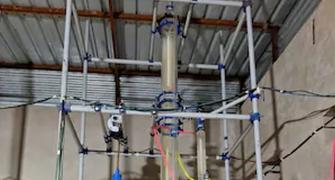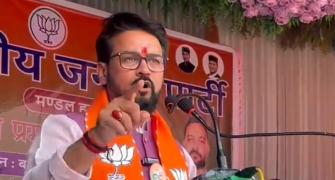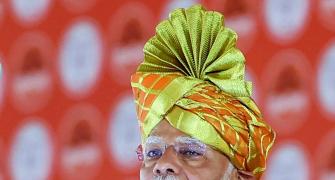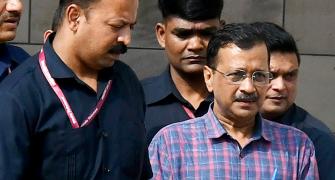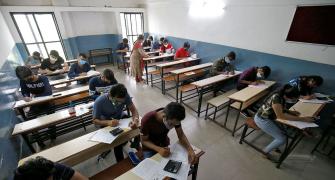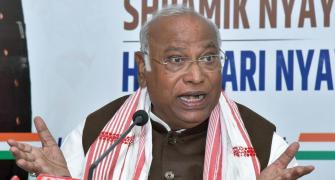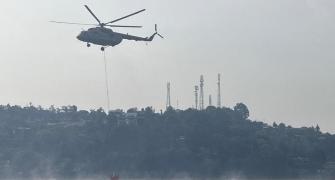A range of issues including the status of the ongoing India-Pakistan dialogue will be discussed when Pakistani Foreign Minister Khurshid M Kasuri pays a three-day visit to the US capital Washington, DC, starting July 9.
The Pakistani foreign minister will also raise the issue of a nuclear deal with his country similar to the Indo-US
civilian nuclear agreement.
Kasuri's visit follows the recent trip to Pakistan by Secretary of State Condoleezza Rice and the Bush administration's formal notification to Congress of a proposed F-16s package for that country totalling US$ 5 billion and which includes new planes, refurbishments to existing ones and munitions.
He is expected to meet top administration officials at various departments and will be interacting with leading thinktanks on Capitol Hill. Kasuri will be addressing the Carnegie Endowment on July 11.
The basic thrust of the talks are expected to be on Pak-US relations which became especially significant in the aftermath of the terror attacks of September 11, 2001, and the Bush administration classifying Islamabad as a major partner
in the global war on terror.
In recent weeks Washington has also been quite apprehensive at the state of the Pakistan-Afghanistan relationship and has been trying to soothe ruffled feathers on both sides of the border. The situation in Afghanistan is likely to be raised when Kasuri meets Rice next Monday.
Kasuri, who is in Paris to hold talks with his French counterpart Philippe Douste-Blazy, had told state-run PTV
before leaving that he would not "hesitate to press" French and American officials on Pakistan's case for civilian nuclear
technology.
He had said he would ask both nations to rethink their stand on their persistent refusal to reach a pact with Pakistan similar to the Indo-US civilian nuclear deal.
Meanwhile, officials of the Bush administration have denied any connection between the announcement of the F-16s
package and the passage of the civilian nuclear energy deal between India and the United States in the House International
Relations Committee and the Senate Foreign Relations Committee last week.
However, political observers have drawn a linkage between the two, especially with regard to its timing.
The notification to Congress on June 28 has left the legislature with 30 days to reject the package; and the House International Relations Committee has scheduled a hearing on the subject for July 13.
Congressional aides pointed out that a formal up-down vote in the House and the Senate was not required for the deal
to pass through Capitol Hill.
The arms package is expected to be approved as observers said Congress hardly strikes down arms deals of this
nature; and secondly, because the Congressional calendar being what it is, does not permit a major debate and vote on this
issue.
Senior officials have told PTI that over the last one year or more the administration has been speaking to members
of Congress in private or in closed sessions. The decision to go ahead with the F-16s to Pakistan was made in March 2005, it is being pointed out.

